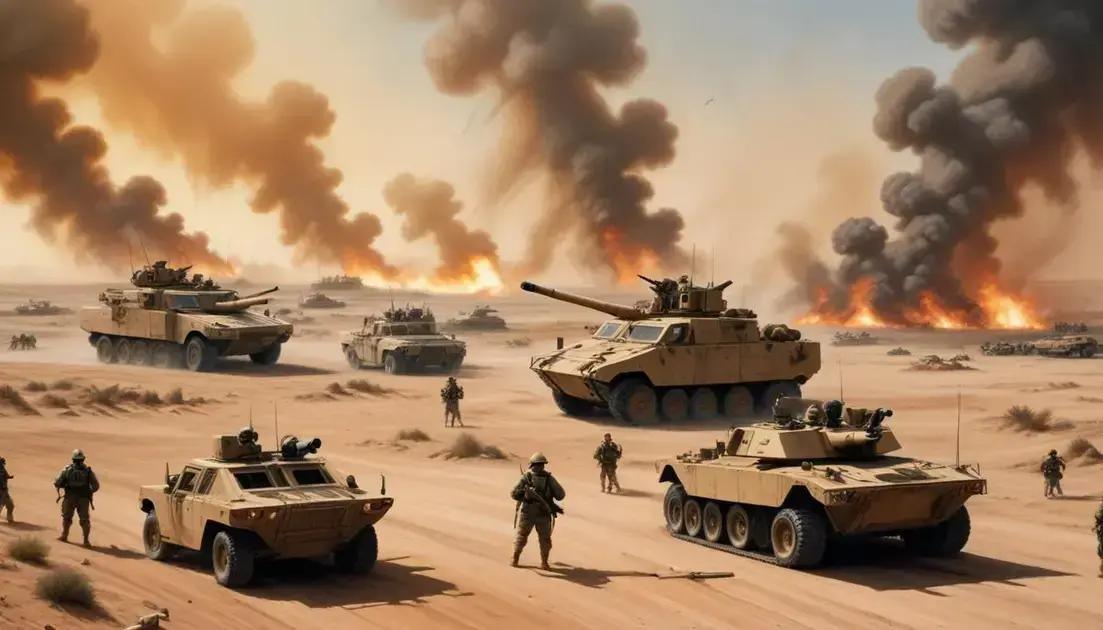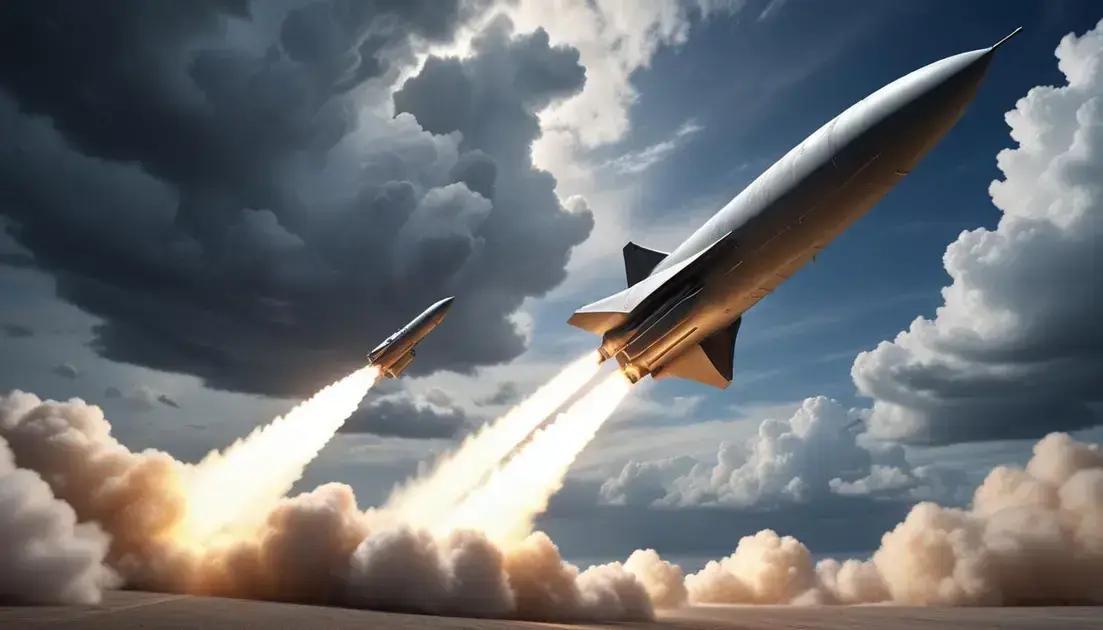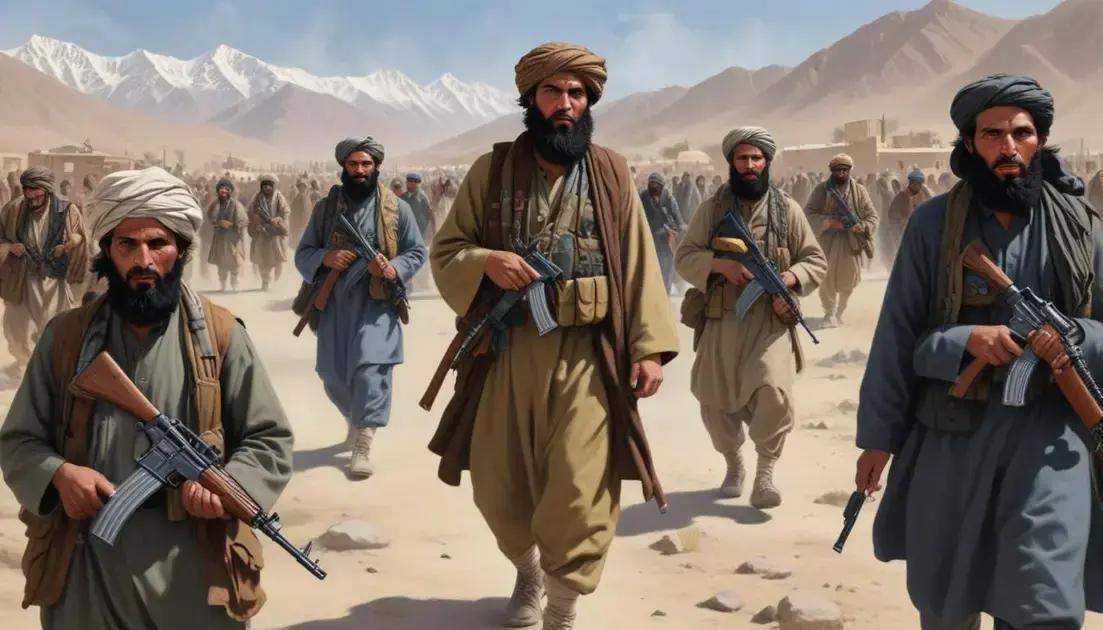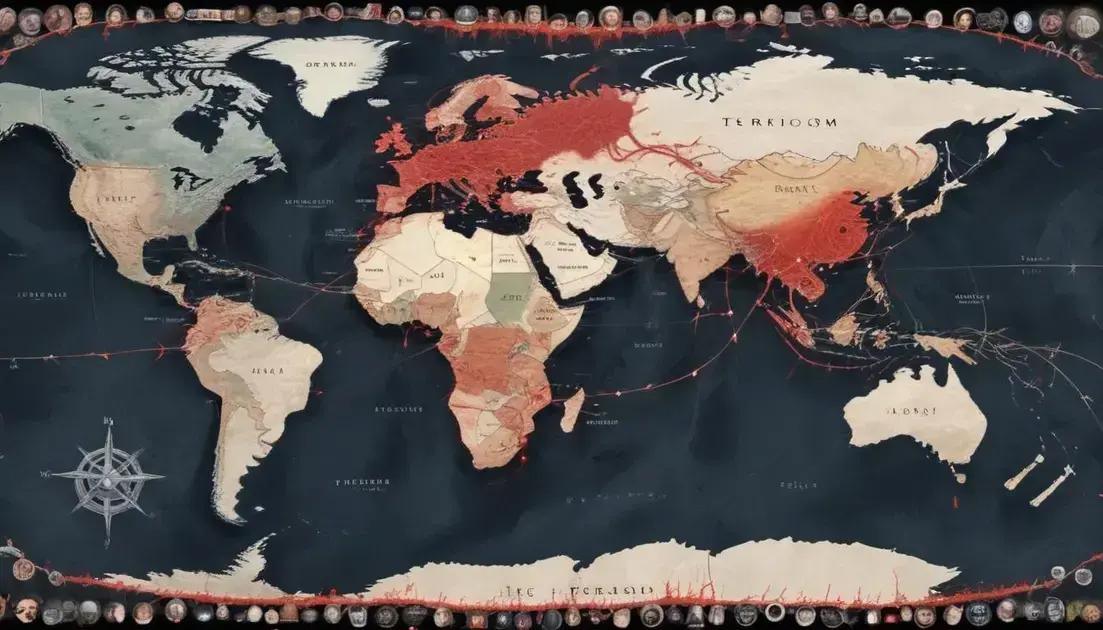
The Gulf War and the age of strategic oil
The Gulf War had a profound impact on modern warfare, introducing new military strategies such as precision strikes and coalition building. It reshaped global energy policies by emphasizing the importance of stable oil supplies and led to increased investments in alternative energy sources. The war also highlighted humanitarian considerations in military planning and brought attention to the influence of media coverage on public perception of conflicts. These lessons continue to influence today’s military operations and policies.
The Gulf War showcased a pivotal moment in modern military strategy, highlighting the crucial link between military power and energy resources. It’s a topic that raises so many questions…
The Prelude to War
The Prelude to War set the stage for a significant conflict. Tensions were rising due to Iraq’s invasion of Kuwait in 1990. This invasion was driven by various factors, including economic issues and territorial disputes.
Many countries saw the invasion as a threat to global stability. The United States and its allies were concerned about the control of oil supplies. They understood that Kuwait’s oil reserves were vital for the world’s economy.
Shortly after the invasion, the UN responded by imposing sanctions on Iraq. These sanctions aimed to weaken Iraq’s economy and pressure it to withdraw from Kuwait. However, Iraq remained defiant, leading to increased tensions.
Diplomatic efforts were undertaken to resolve the situation without military action. Many nations attempted talks to encourage Iraq to pull out of Kuwait. Unfortunately, these negotiations failed and the conflict escalated.
As the situation worsened, countries rallied together to form a coalition. They believed that military action was necessary to restore order and protect global oil interests. This was a defining moment that led to the Gulf War, changing the landscape of international relations.
The Oil Factor
The Oil Factor played a critical role in the Gulf War. Oil was not just a resource; it was a central theme of the conflict. Iraq’s invasion of Kuwait threatened a huge supply of oil. This alarmed many nations, especially those dependent on oil exports.
At the time, the world economy relied heavily on oil. Kuwait was among the top producers. Losing access to this oil would affect fuel prices and economic stability globally.
The United States and its allies feared that if Iraq controlled Kuwait, it could dominate the oil market. This could lead to higher prices and energy crises around the world.
Countries joined forces to ensure the flow of oil remained steady. The coalition aimed to protect not only Kuwait but also vital oil fields. They launched Operation Desert Shield to deter further aggression.
This commitment to protecting oil interests highlighted how energy resources can drive military actions. The strategies developed during this conflict continue to shape policies today. The importance of oil in global politics remains undeniable.
Military Strategy and Tactical Approaches
Military Strategy and Tactical Approaches were key elements in the Gulf War. The coalition forces developed a detailed plan before engaging in battle. They aimed for a quick and decisive victory to minimize casualties.
Coalition forces included units from various countries. The United States played a leading role, contributing air and ground troops. Their advanced technology gave them an edge. Precision bombing targeted key military installations in Iraq.
Additionally, the concept of “shock and awe” was central to their strategy. This involved overwhelming the enemy with rapid and powerful attacks. The goal was to break the enemy’s will to fight quickly.
Ground forces launched Operation Desert Storm as a follow-up to air strikes. This ground offensive was swift and effective. Troops moved quickly through Kuwait, liberating it from Iraqi control.
Logistical planning was also crucial. Supply lines had to be secure to support troops in the field. The coalition forces ensured they had the necessary resources to sustain their operations.
The use of technology, strategy, and teamwork contributed to the success of the Gulf War. These tactical approaches became a model for future military operations.
Consequences of the Gulf War
Consequences of the Gulf War were wide-ranging and significant. The conflict reshaped not just the Middle East but also global politics. After the war, Iraq faced heavy sanctions that severely impacted its economy.
The United States emerged as a dominant power in the region. Its military presence in the Gulf increased, influencing local politics. This led to strong relationships with some countries and tensions with others.
Furthermore, the war had humanitarian effects. Thousands of civilians were displaced, and many faced hardships. The environmental damage was also significant, with oil wells set ablaze, causing pollution in the region.
In addition, the Gulf War marked the rise of new military strategies. The effective use of technology changed how future conflicts were approached. Leaders learned the importance of quick, decisive action in warfare.
The war also had lasting implications for terrorism. The presence of foreign troops in the region sparked resentment. This would later contribute to the rise of extremist groups.
Overall, the Gulf War left a complex legacy. It influenced international relations, local politics, and military strategies for years to come. The consequences continue to shape the geopolitical landscape today.
Impact on Global Energy Policy
Impact on Global Energy Policy changed significantly after the Gulf War. This conflict highlighted the importance of stable energy supplies. Many countries realized they needed to diversify their energy sources.
Before the war, most nations relied heavily on oil from the Middle East. After seeing the chaos caused by the invasion, countries began exploring alternative energy options. These included renewable energy sources like solar and wind.
Additionally, oil-producing countries faced pressure to stabilize production. The Gulf War made it clear that any disruptions could lead to global economic issues. Countries sought to develop better relationships with reliable oil suppliers.
International organizations, like the International Energy Agency (IEA), also took action. They aimed to strengthen energy security and reduce vulnerabilities. This led to strategies for strategic oil reserves and better emergency response plans.
The Gulf War served as a wake-up call to many countries. Governments started investing in technology to improve energy efficiency. They aimed to reduce dependence on any single energy source.
Today, the influence of the Gulf War continues to shape energy policies worldwide. The focus on energy security and sustainability remains strong in global discussions about energy resources.
Legacy of the Gulf War in Modern Warfare
Legacy of the Gulf War in Modern Warfare has been profound and lasting. The conflict changed how wars are fought today. It introduced new tactics and technology that shaped future military operations.
One major change was the emphasis on precision strikes. The use of smart bombs and missile technology made it clear that accuracy saves lives and resources. This approach became a standard practice in later conflicts.
Furthermore, the Gulf War highlighted the importance of coalition-building. Countries worked together to achieve common goals. This showed that international cooperation could enhance military effectiveness.
The media also played a huge role during the Gulf War. Live broadcasts changed how the public viewed military actions. This transparency influenced public opinion and government decisions in subsequent conflicts.
Additionally, the importance of logistics and planning was showcased. The speed and efficiency of troop deployments set a new benchmark for modern militaries. Ensuring that supplies reach forces quickly is now crucial.
The Gulf War also raised awareness about the impact of warfare on civilians. Humanitarian considerations started to play a bigger role in military planning and operations.
Today, military strategists continue to study the Gulf War. They consider its lessons when planning for future engagements. The legacy of the Gulf War is still felt in how modern conflicts are approached and managed.
Conclusion
In conclusion, the Gulf War reshaped many aspects of modern warfare and global energy policy. Its impact can still be seen in military strategies, international relations, and energy security concerns. The use of technology, such as precision strikes and coalition building, changed how wars are fought today.
Moreover, the conflict raised important questions about the humanitarian impact of war. This awareness continues to influence military planning and operations. As we reflect on the Gulf War, it’s clear that its lessons remain relevant in addressing current and future conflicts.
Ultimately, understanding the legacy of the Gulf War helps us learn from the past. These lessons can guide our approach to peace, stability, and cooperation in a complex world.


